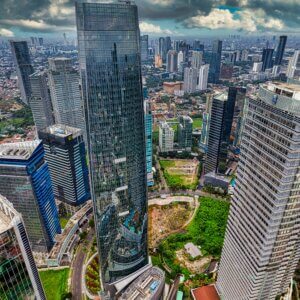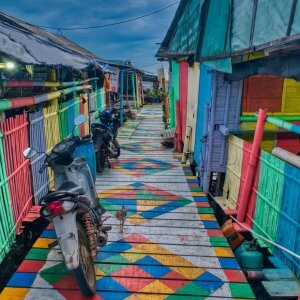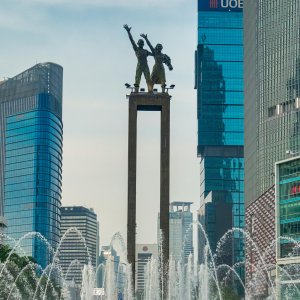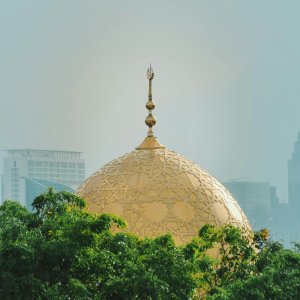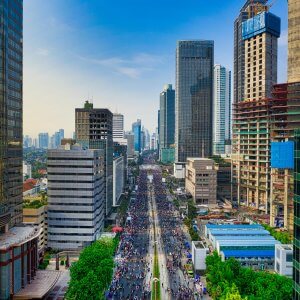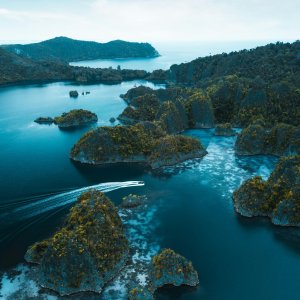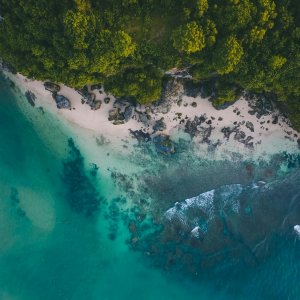Economic growth often depends on affordable energy and a resource-driven industry that locks in high emissions.Indonesia faces a deep policy and cost tension between economic development priorities and climate change mitigation commitments. The government has set ambitious goals to provide jobs, build infrastructure, expand energy access, and reduce poverty. Still, these priorities often run up...
Author: Netra Naik (Netra Naik)
Indonesia: How To Reach The Hardest-To-Reach Climate Target Group
Rural smallholder farmers and small-scale coastal fishers, especially in Papua, Maluku, East Nusa Tengarra, Sulawesi, and Kalimantan.Indonesia’s climate success depends on reaching its rural smallholder farmers and small-scale coastal fishers, who remain the hardest groups to include in emission reduction programs. Concentrated in Papua, Maluku, East Nusa Tenggara, Sulawesi, and Kalimantan, these communities, numbering in...
Indonesia: The Politics of Climate Change
Four political forces —leadership, technical capacity, media, and popular opinion — characterize the politics of climate change in Indonesia. Indonesia sits at the center of the global climate challenge. The country pledges to reach net zero by 2060, restore 3.3 million hectares of mangroves, and tap its vast 3,600 gigawatts of renewable potential. Yet it...
Indonesia: Nuclear Energy Updates
In the past five years, Indonesia has produced no nuclear power. The government is showing more interest in nuclear energy, but no plants have been approved or funded yet.Indonesia still generates 0% of its electricity from nuclear power. There has been no increase in nuclear generation over the past five years because the country has...
Indonesia: 2025 Mid-Year Emissions Report Card
According to Climate TRACE, Indonesia has shown back-to-back emissions reductions in early 2025. As one of the world’s top greenhouse gas emitters, Indonesia’s trajectory has major implications for global climate targets. In early 2025, Climate TRACE, a global emissions tracking initiative using satellite and AI data, began releasing monthly national emissions updates. These high-resolution datasets...
Roadmaps for the Future: Indonesian Climate Experts on What Needs to Be Done
Dr. Masyita Crystallin: Driving Indonesia’s Equitable Transition to a Low-Carbon Economy One prominent Indonesian expert on climate policy and emissions reduction is Dr. Masyita Crystallin, who serves as the Special Advisor to the Minister of Finance of Indonesia on Macroeconomic and Fiscal Policy. She is also Indonesia’s Sherpa to the Coalition of Finance Ministers for...
Indonesia faces significant challenges in ensuring equal access to essential services like affordable renewable energy, transportation, and waste management
Indonesia, comprising more than 17,000 islands and over 270 million people, faces significant challenges in ensuring equal access to essential services, including affordable renewable energy, transportation, and waste management. Marginalized groups, such as primarily rural and remote island communities and urban slum populations, experience chronic barriers to accessing these services, with deep effects on their...
Indonesia is Progressively Employing Nature-Based Solutions (NBS) to Address Climate Change
Indonesia is progressively employing nature-based solutions (NBS) to address climate change, leveraging its extensive natural ecosystems, including tropical forests, peatlands, and mangroves. These efforts focus on conserving, restoring, and managing these ecosystems to enhance carbon sequestration and reduce greenhouse gas emissions. The country’s commitment to NBS is evident in its enhanced Nationally Determined Contribution (NDC),...
Indonesia Actively Integrates Automated and Electric Public Transportation, Focusing Primarily on Buses and Trains
Indonesia, a country with a rapidly growing urban population and rising greenhouse gas emissions, is taking significant steps towards automated and electric public transit. The nation’s commitment to reducing emissions through sustainable transport solutions could serve as a model for other developing countries. Indonesia actively integrates automated and electric public transportation, focusing primarily on buses...
High Import Duties, Limited Domestic Component Supply, and Underdeveloped Infrastructure Needs to be Addressed to Unlock Indonesia’s EV Potential
As of 2022 in Indonesia, there were approximately 28,000 EVs on the road, and in 2023, EV sales more than tripled compared to 2022. By the first half of 2024, nearly 40,000 units were sold, with a focus primarily on hybrid vehicles. As of January 2024, Indonesia had 2,704 public electric vehicle (EV) charging stations and...


